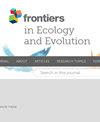城市低碳治理与生态效率:来自中国地级市的新证据
IF 2.4
3区 环境科学与生态学
Q2 ECOLOGY
引用次数: 0
摘要
引言 在寻求可持续发展的过程中,城市生态发展正成为各国的核心议程。中国的低碳城市试点(LCCP)政策是推动城市低碳治理的重要举措。方法利用 2007 年至 2020 年 254 个地级市的面板数据,采用超级-SBM 计算城市生态效率。核密度估计和空间马尔可夫链方法被应用于城市生态效率的空间分析。空间分析考察了城市生态效率的时空格局和动态演变趋势。此外,我们还采用了多期差分法来评估 LCCP 政策对城市生态效率的影响。结果表明,城市生态效率逐渐形成连续的空间集聚格局,但绝对差异有扩大趋势。在随后的转移过程中,空间因素发挥了重要作用。基准回归和辅助稳健性检验表明,LCCP 政策能有效提高城市生态效率。进一步的分析表明,LCCP 政策对生态效率的影响可以通过促进绿色技术创新以及推动能源结构的低碳转型来传递。上述发现表明了 "绿色创新效应 "和 "脱钩效应 "的存在。本文章由计算机程序翻译,如有差异,请以英文原文为准。
Urban low-carbon governance and ecological efficiency: new evidence from prefecture-level cities in China
IntroductionIn the search for sustainable development, urban eco-development is becoming a core agenda for all countries. China’s low-carbon city pilot (LCCP) policy is an important initiative to promote urban low-carbon governance. And exploring the direction of LCCP policy is an important step towards sustainable urban development.MethodsSuper-SBM is employed to calculate urban ecological efficiency using panel data from 254 prefecture-level cities between 2007 and 2020. The methods of kernel density estimation and spatial Markov chains are applied to the spatial analysis of urban ecological efficiency. The spatial analyses examine the spatiotemporal patterns and dynamic evolving trends of urban ecological efficiency. Additionally, the multiperiod difference-in-differences method is used to assess the impact of the LCCP policy on urban ecological efficiency. On this basis, we apply the method of mechanism analysis to discuss the influence mechanism.ResultsThe results indicate that urban ecological efficiency gradually forms a continuous spatial clustering pattern, although there is a widening tendency in the absolute differences. In the subsequent transfer process, the spatial factor plays a highly significant role. Benchmark regressions and auxiliary robustness tests demonstrate that the LCCP policy is effective in improving urban ecological efficiency. Further analysis shows that the effect of LCCP policies on ecological efficiency can be transmitted by promoting green technology innovation as well as facilitating a low-carbon transition in the energy mix. The above findings indicate the presence of the "Green Innovation Effect" and the "Decoupling Effect".DiscussionThese discoveries enhance the theoretical framework of urban ecology and offer valuable insights for other regions seeking to implement low-carbon urban governance.
求助全文
通过发布文献求助,成功后即可免费获取论文全文。
去求助
来源期刊

Frontiers in Ecology and Evolution
Environmental Science-Ecology
CiteScore
4.00
自引率
6.70%
发文量
1143
审稿时长
12 weeks
期刊介绍:
Frontiers in Ecology and Evolution publishes rigorously peer-reviewed research across fundamental and applied sciences, to provide ecological and evolutionary insights into our natural and anthropogenic world, and how it should best be managed. Field Chief Editor Mark A. Elgar at the University of Melbourne is supported by an outstanding Editorial Board of international researchers. This multidisciplinary open-access journal is at the forefront of disseminating and communicating scientific knowledge and impactful discoveries to researchers, academics and the public worldwide.
Eminent biologist and theist Theodosius Dobzhansky’s astute observation that “Nothing in biology makes sense except in the light of evolution” has arguably even broader relevance now than when it was first penned in The American Biology Teacher in 1973. One could similarly argue that not much in evolution makes sense without recourse to ecological concepts: understanding diversity — from microbial adaptations to species assemblages — requires insights from both ecological and evolutionary disciplines. Nowadays, technological developments from other fields allow us to address unprecedented ecological and evolutionary questions of astonishing detail, impressive breadth and compelling inference.
The specialty sections of Frontiers in Ecology and Evolution will publish, under a single platform, contemporary, rigorous research, reviews, opinions, and commentaries that cover the spectrum of ecological and evolutionary inquiry, both fundamental and applied. Articles are peer-reviewed according to the Frontiers review guidelines, which evaluate manuscripts on objective editorial criteria. Through this unique, Frontiers platform for open-access publishing and research networking, Frontiers in Ecology and Evolution aims to provide colleagues and the broader community with ecological and evolutionary insights into our natural and anthropogenic world, and how it might best be managed.
 求助内容:
求助内容: 应助结果提醒方式:
应助结果提醒方式:


